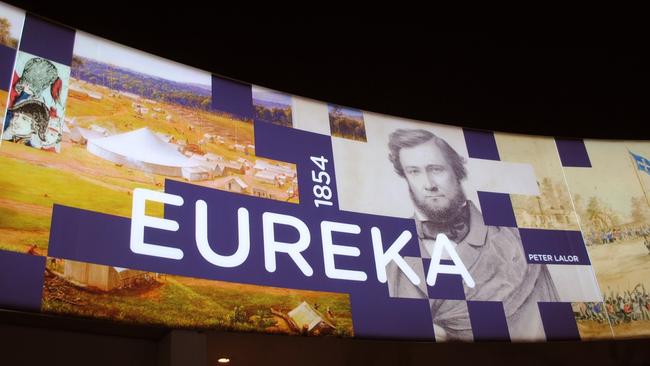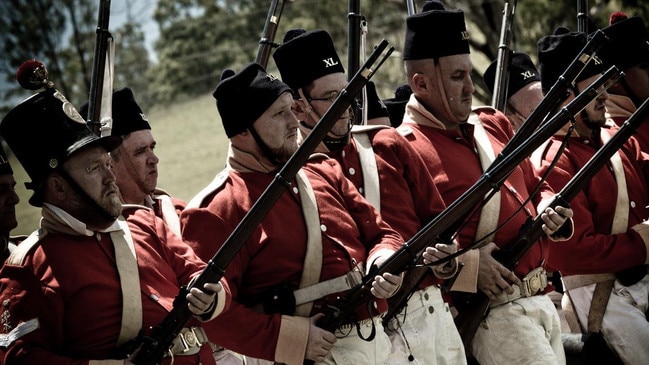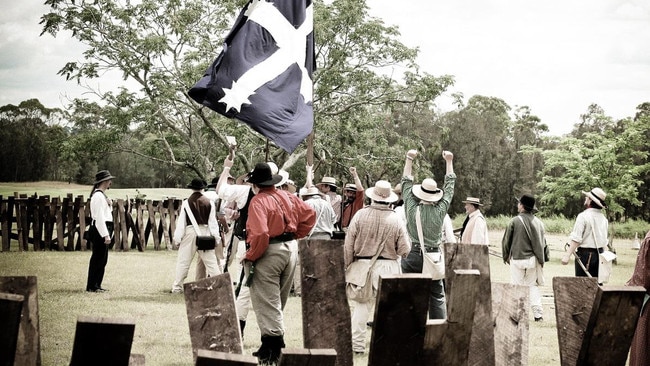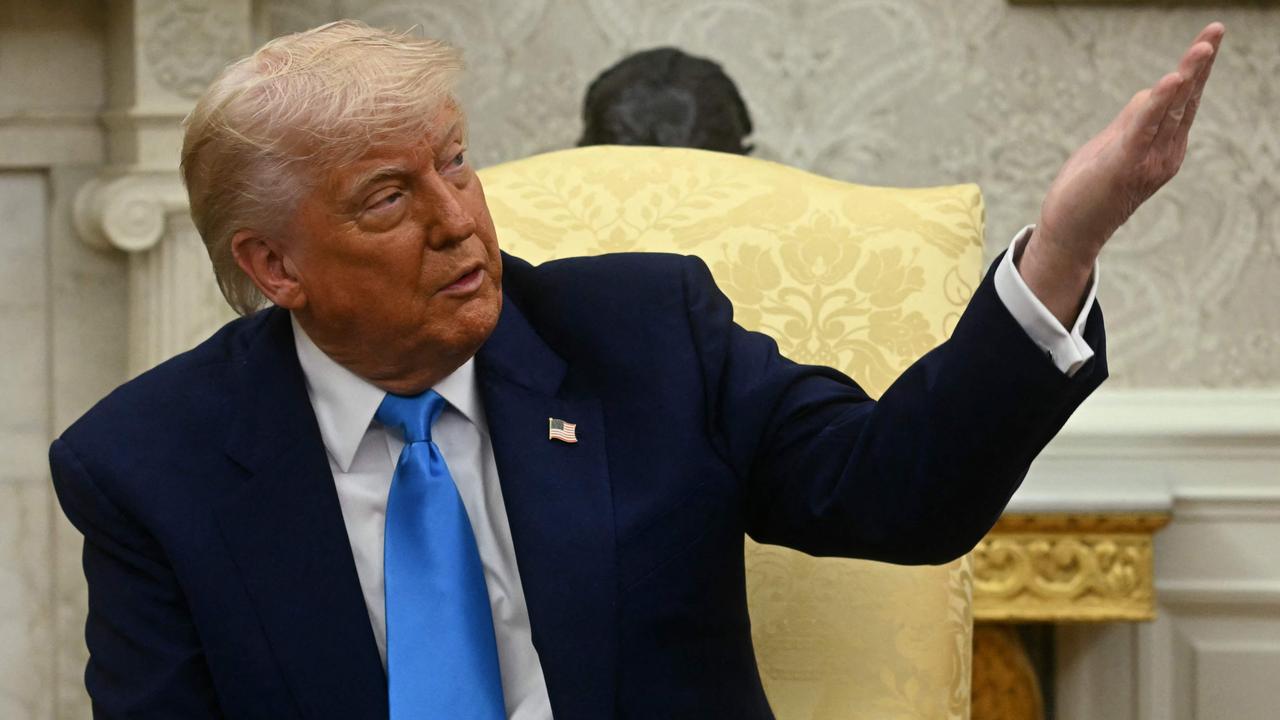
The lasting message from all those years ago is the vital importance of fair dealing by those in authority.
The men who died that day on the Ballarat goldfields were prospectors and miners who had no say in the colonial administration of Victoria.
They had been subjected to a harsh licence fee of 30 shillings a month, which was roughly equivalent to a week’s wages. That fee had to be paid regardless of how much gold, if any, had been recovered.
It was taxation without representation. They had no right to vote.
Months before the uprising, civil disturbances around Ballarat had become more frequent. This was exacerbated on November 30, 1854, when police moved through the miners’ camp, demanding to inspect licences.

The miners responded by building the stockade, selecting Peter Lalor as their reluctant leader, raising the Southern Cross flag and reciting the famous oath:
“We swear by the Southern Cross, to stand truly by each other, and to fight to defend our rights and liberties.”
On the morning of Sunday, December 3, about 300 soldiers and police attacked the stockade, killing about 30 miners. Five soldiers also died.
Within a year, the monthly licence fee of 30 shillings had been replaced with an annual miners’ right that cost one pound.
Within two years, laws enacted in London and Melbourne provided for universal male suffrage in the Victorian Legislative Assembly.
Thirteen miners who had been charged with treason were released and Peter Lalor was elected to the Victorian parliament.
The men at Eureka lost the fight on that Sunday morning, but they won a much greater victory.
In 1854, miners had been denied that most fundamental of Australian values: a fair go. Their armed revolt made that denial of fair treatment impossible for anyone to ignore – both in Victoria and London.
In the 170 years since Eureka, the great principle of fair dealing has become entrenched in the legal system and the psyche of subsequent generations.

When confronted with intolerable unfairness those in the resources sector now have an option that was not available to the men at Eureka.
They can take those responsible to court – and that includes rogue legal practices as well as federal ministers.
They might hold positions of power and trust, but politicians and lawyers are not above the law. The courts are looking over their shoulders.
The paramount duty of every lawyer is not to their clients; it is to the justice system. And politicians risk judicial intervention unless administrative decisions are the result of procedural fairness.
In the past, great lawyers have shown what that means.
Long after he retired, a former chief solicitor of one this country’s biggest banks told me how he had once learned that his client, a branch manager, had lied in court in order to defeat a case that had been brought by a disgruntled former client.
After learning of this, the chief solicitor marched back into court and shocked his client by withdrawing the bank’s defence and accepting liability.
He did this without hesitation – and with subsequent support from the bank’s senior management – because he knew his first duty was to the interests of justice.
Once he became aware his client had presented false evidence, he had an ethical duty as an officer of the court to ensure it would not be misled into making an order that was based on a lie.
He was sufficiently independent to see that his first duty was to the court, not to one crooked banker. Which brings us to the Environmental Defender’s Office.
The Federal Court has ordered this publicly funded legal centre to pay more than $9m in legal costs to gas giant Santos.
Santos had pursued the EDO for full recovery of its costs after the legal centre presented the court with expert evidence about Aboriginal heritage that was found to be lacking in integrity.
The EDO did this as part of its client’s failed attempt to scuttle the $5.8bn Barossa gas project in the Timor Sea.
The payment of $9m in legal costs might not be the end of this story.
Because the EDO receives financial support from the federal government, the opposition has given notice that in intends to refer those responsible for any wrongdoing to the National Anti-Corruption Commission.
Contested evidence about Aboriginal heritage is also at the heart of the legal dispute over the fate of a $1bn gold mine that had been planned by Regis Resources near Blayney in NSW.
The EDO was also involved in that case.
Regardless of the outcome, these cases show that the balance is shifting away from Eureka’s demand for fair dealing.
Instead, there is growing evidence that suggests some of those in positions of trust have been captured by sectional interests.
The courts can provide remedies. But those remedies can only do so much. They cannot restore confidence in a regulatory regime that clearly lacks rigour.
We could still change course, but at the moment we are sleepwalking into dark times.
This country has succeeded precisely because of the principles of equal treatment and fair dealing that is the true legacy of Eureka.
It’s time to defend that legacy.
Chris Merritt is vice-president of the Rule of Law Institute of Australia. This article is based on an address delivered in Perth on Tuesday marking the 170th anniversary of the Eureka Stockade.




It was exactly 170 years ago this week that brave men died inside the Eureka Stockade after pledging, under the flag of the Southern Cross, to fight for their rights and liberties.